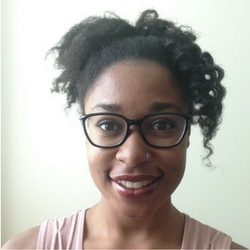Just starting out in graduate school immediately means one thing for me: Everything I knew about education was about to change. While I was once buying one or two books max per class in my undergraduate years, I now find myself purchasing ten or more for just one! I am no longer faced with any recommended books as all are required and fully expected to be read and understood. For a moment during my first day of class, I found myself floundering beneath the weight of each syllabus I collected, wondering how — or if— it was possible to do everything I’d just been handed and do it well.
In short, it seemed too difficult. These classes were so difficult that I wondered if I had sacrificed my life and sanity to pursue a graduate degree. The road ahead would be long and indeed difficult.
Then I noticed my internal monologue and it made me pause. Was it the weight of these syllabi that was bogging me down and keeping me from coherently thinking through my new circumstances, or was it the weight of negativity that tainted each thought by way of the word ‘difficult’ that was making me unproductive and unnecessarily stressed out?
After experimentally striking the word from my mind and looking at my class schedule and the requirements of each course in a new light, I discovered that the dead weight was in fact in the world difficult, so I decided to cut it away for good. Here’s why:
The Word Difficult Makes Things Seem Difficult
When we use the word ‘difficult,’ we tend to substitute it as a catch-all phrase for words like challenging, busy, complex and unorthodox and to describe work that we can do but would prefer not to have to deal with. In easy-going conversation with friends, it is a simple go-to word that everyone can nod their heads to in sympathy without knowing the particulars of one’s situation, but let’s be honest, when is the internal conversation we have with ourselves ever easygoing?
Especially for someone like me, who is highly self-critical for no good reason, the word ‘difficult’ becomes a roadblock to progress and finding solutions. Instead of using catch-all, negative terms when I sit down to make a task seem less challenging, I force myself to look at the particulars of what has daunted me. I worried over copious amounts of reading when I could realistically break the reading down into one or two chapters a day, making it much more doable. Sure it’s still a lot, but now it is something feasible that I can do right now to start eating away at my reading list.
Breaking it into small, spread out, do-able pieces takes the ‘scary’ factor out of the tasks we are set to accomplish. An outline here, an introduction there and so on. This seems pretty self-explanatory, like a regular time-management strategy that I certainly didn’t come up with on my own. Before I could put myself into a focused mindset, I had to rid myself of the negativity that clouded my judgement. I had to get rid of the word ‘difficult’ to be able to take on tasks that seemed daunting but in reality were rather manageable.
Difficult Makes Things Seem too Simple
Given my first reason, you’re probably giving me a bit of side-eye glance right now, but hear me out. My second reason for removing the word ‘difficult’ from my vocabulary is that it not only makes a situation seem more stark and unforgiving than it is, it also makes a situation seem more black-and-white.
Like in the fairy tale books, we had the charming prince that risked everything (not only his life, but possibly the political stability of his own kingdom, the cleanliness of his clothing, and the peace of mind of his family) to save the damsel-in-distress (who may have just been screaming because she was having on off-day and needed some me-time), who were good, and then we had the evil queen, sorcerer, etc. who – far be it from having a legitimate beef with King Pernicious because of his allowance of squatters from his kingdom on her land – was simply evil.
Believe it or not, there is a point to this verbose example. Like fairy tales, the notion that many events in our lives are cut-and-dry, good or evil, easy or difficult, is fictional. Often there are many factors that go into even the smallest situations we come across, even if those factors themselves aren’t all that complex. It all boils down to the mindset we establish and how willing we are to maintain a positive attitude. Humans are complex beings and it goes without saying that the way we respond to certain challenges often results from more than one, single-word explanation.
In short, many people often use the word ‘difficult’ similarly to how we use the word ‘evil.’ This thing I named ‘difficult’ is bad, makes me feel stressed and makes me question my qualifications, but it’s a filler word that – while negative – really means nothing without context. Therefore, we turned what may be but one obstacle we experience in life into this abstract bogey man that we have worked ourselves up over to the point of terror.
‘Difficult’, for all of the dead weight it makes us lug around, is just too simplistic to be of any real use.
So take my advice and cut it out of your vocabulary because let’s be honest, no one needs that kind of negativity.






